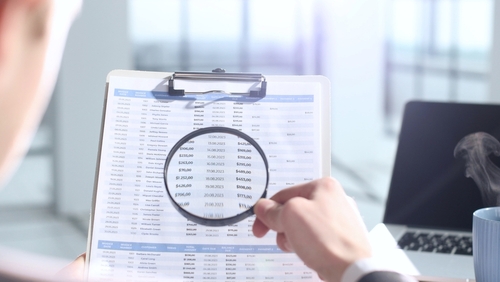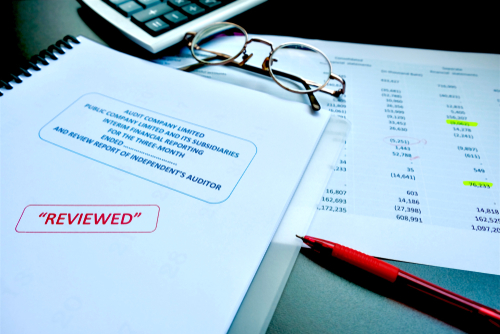
What is the Difference Between Internal and External Audits?
October 3, 2024How to Prepare Your Business for an External Audit?

How to Prepare Your Business for an External Audit
How to Prepare Your Business for an External Audit? Preparing for an external audit can be a stressful and time-consuming process for any business.
However, external audits are crucial to ensure compliance with regulatory standards, validate financial accuracy, and build trust with stakeholders such as investors, customers, and creditors.
A well-prepared business not only makes the audit process smoother but also minimizes the chances of unexpected issues arising.
In this article, we will discuss the steps to prepare your business for an external audit, including organizing financial records, preparing employees, and ensuring compliance with industry regulations.
By following these steps, you can ensure that your audit is completed efficiently, with minimal disruptions to your operations.
Scope of the External Audit
What is the Purpose of an External Audit?
An external audit is an independent review of a company’s financial statements and processes, typically conducted by a third-party auditor.
The goal is to ensure that the financial statements provide an accurate and fair representation of the company’s financial performance and position, in compliance with relevant accounting standards.
External audits also assess the effectiveness of a company’s internal controls and ensure compliance with applicable laws and regulations.
The findings of the audit are usually reported to stakeholders, including shareholders, regulatory bodies, and potential investors.
Identify Key Areas to Be Audited
Before the audit begins, it is essential to identify the specific areas of your business that will be subject to review. The auditor will typically focus on key financial areas such as:
- Financial statements: Including the balance sheet, income statement, and cash flow statement.
- Internal controls: Evaluating the effectiveness of the systems in place to ensure accuracy and compliance.
- Transactions and records: Ensuring that financial transactions have been properly recorded and classified.
- Compliance with regulations: Verifying that the business complies with industry-specific regulations and accounting standards.
Knowing the scope of the audit will help you prioritize your preparation efforts and focus on the areas that are most likely to be scrutinized.
Organize and Review Financial Records

Gather Financial Documents
One of the most critical aspects of preparing for an external audit is to ensure that your financial records are well-organized and complete. Auditors will require access to various financial documents, such as:
- Bank statements and bank reconciliations for all company accounts.
- Invoices and receipts for income and expenses.
- General ledger and subsidiary ledgers.
- Payroll records and employee-related expenses.
- Tax returns and other tax-related documentation.
Having these records organized and easily accessible will speed up the audit process and demonstrate that your business maintains accurate and detailed financial records.
Ensure Accuracy of Financial Statements
Before the external audit begins, take the time to review your financial statements and ensure that they are accurate and in compliance with accounting standards. Ensure that:
- All transactions are properly recorded.
- Revenue and expenses are categorized correctly.
- Assets and liabilities are accurately reflected.
- Adjustments and accruals have been made where necessary.
If you discover any discrepancies, it is important to address them before the audit to avoid complications during the review process.
Reconcile Accounts
Reconciliation is a key step in preparing for an external audit. It involves comparing your internal financial records to external records (such as bank statements) to ensure that all balances match.
Auditors will likely request reconciliation reports for:
- Bank accounts: Ensure that your bank balances match the bank statements.
- Accounts receivable and payable: Confirm that the balances are accurate and reflect the actual amounts owed to or by the business.
- Inventory records: If applicable, ensure that the inventory on hand matches the inventory reported on the financial statements.
Accurate reconciliation will help ensure that your financial records are complete and that there are no unexplained discrepancies.
Prepare Your Employees and Departments

Assign Roles and Responsibilities
Preparing for an external audit is a team effort, and it’s important to assign roles and responsibilities to key members of your staff. Identify who will be responsible for:
- Providing the necessary documentation to the auditor.
- Answering questions from the auditor about specific transactions or processes.
- Coordinating communication between different departments and the audit team.
Having a clear structure in place ensures that the audit process runs smoothly and that there is no confusion or delay in responding to the auditor’s requests.
Educate Employees About the Audit Process
It’s essential to educate employees about the audit process and what to expect during the review.
Make sure employees understand that the audit is a standard procedure designed to verify the accuracy of the company’s financial statements and internal controls.
Encourage employees to be transparent and cooperative with the audit team.
If any issues arise, such as missing documentation or discrepancies, it’s better to address them upfront rather than try to hide them from the auditor.
Review Internal Controls and Compliance
Evaluate Internal Controls
The auditor will likely assess your company’s internal controls to determine how effectively they mitigate risks and ensure the accuracy of financial reporting.
Before the audit begins, take the time to evaluate your internal controls to ensure they are functioning as intended.
Key areas to review include:
- Segregation of duties: Ensure that responsibilities for financial transactions are divided among different employees to reduce the risk of fraud or errors.
- Approval processes: Verify that all transactions are properly authorized by management.
- Documentation: Ensure that all financial transactions are properly documented with supporting invoices, receipts, and contracts.
If you identify any weaknesses in your internal controls, consider implementing improvements before the audit begins.
Ensure Regulatory Compliance
External auditors will also assess whether your business is compliant with regulatory requirements and industry standards.
This could include tax laws, labor laws, environmental regulations, and more. Ensure that your business is up to date with all relevant regulations and that you have documentation to demonstrate compliance.
For example, ensure that all tax returns have been filed correctly and that your company has adhered to local tax regulations.
Review your payroll records to ensure compliance with employment laws, such as minimum wage and overtime pay.
Communicate with the Auditor in Advance

Schedule a Pre-Audit Meeting
Before the external audit begins, schedule a pre-audit meeting with the auditor to discuss the scope of the audit, the timeline, and any specific documentation or information that will be required.
This meeting allows you to clarify expectations and ensure that you are fully prepared for the audit process.
During this meeting, the auditor may also provide guidance on how to prepare specific documents or address any concerns you have about the audit.
Open communication with the auditor will help prevent misunderstandings and ensure that the audit proceeds smoothly.
Provide a List of Key Contacts
Provide the auditor with a list of key contacts within your organization, including the finance team, department heads, and any other personnel who will be involved in the audit.
This will help facilitate communication and ensure that the auditor can quickly access the information they need.
Ensure that these contacts are available and ready to respond to the auditor’s requests in a timely manner.
Conduct a Pre-Audit Self-Assessment
Perform an Internal Audit
One of the best ways to prepare for an external audit is to conduct an internal audit before the external auditor arrives. This self-assessment allows you to identify and address any potential issues before the audit, such as:
- Discrepancies in financial records.
- Weaknesses in internal controls.
- Non-compliance with regulations.
By identifying these issues early, you can correct them before they become a problem during the external audit.
Address Potential Red Flags
During your internal review, be on the lookout for any red flags that could attract the auditor’s attention. These might include:
- Large, unusual transactions.
- Unexplained discrepancies between financial records and bank statements.
- Inconsistent documentation for expenses or revenues.
If you discover any red flags, take the time to investigate and resolve them before the external audit begins.
Ensure Proper Documentation

Maintain a Clear Paper Trail
Auditors rely heavily on documentation to verify the accuracy of financial records.
Ensure that all transactions are properly documented with invoices, receipts, contracts, and agreements. This includes everything from revenue generation to expense payments and employee payroll.
Having a clear paper trail makes it easier for the auditor to trace financial transactions and confirm their legitimacy. It also helps prevent delays in the audit process.
Organize Digital Records
If your company uses digital record-keeping systems, ensure that your electronic records are well-organized and easily accessible.
Create folders for different types of documents, such as financial statements, tax returns, invoices, and contracts. Use consistent file-naming conventions so that documents can be easily located.
If you use accounting software, ensure that all financial data is up to date and that you can generate the necessary reports for the auditor.
How to Prepare Your Business for an External Audit? – Conclusion

Preparing your business for an external audit is a multi-step process that requires organization, transparency, and proactive planning.
By understanding the scope of the audit, organizing your financial records, educating your employees, and reviewing your internal controls, you can ensure that the audit process goes smoothly and efficiently.
Moreover, addressing any potential issues before the audit begins can save your business time, money, and stress.
External audits are an essential part of maintaining financial transparency and accountability, and with the right preparation, they can be a valuable tool for identifying opportunities to improve your business operations!
Are you seeking professional and reliable accounting services in Singapore? Contact us today!


